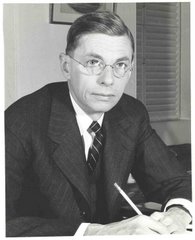The First International RCC J.B. Conant Seminar “Media, Democracy and Public Interest” at the Real Colegio Complutense, Harvard University on December 8 & 9, 2007.
FREE, OPEN TO THE PUBLIC, IN ENGLISH.
Location: RCC Conference Room 26 Trowbridge Street, Cambridge , MA (corner of Harvard Street ).
Seminar Schedule:
Saturday (first day).
9:00-9:30 Registration (if you want a certificate of attendance)
9:30-10:00 Introduction. Angel Saenz Badillos, RCC Director. Nolan Bowie, RCC J.B. Conant Group & KSG, Harvard University.
10:00-12:45 First Panel: “Does the Media Ownership affect Democracy (I). Public Interest and Ownership.”
Participants:
Vincent Mosco (Queens’s University, Canada)
Rose Moss (Nieman Foundation & Harvard Law School)
Pippa Norris (KSG, Harvard University)
Dennis Mazzocco (Hofstra University)
Alberto González Pascual (Introduction. RCC JB Conant Group, Manager of I+D Projects. Sogecable Broadcasting Corporation & Complutense University of Madrid)
Lunch: 12:45-1:45
1:45-4:00 Second Panel: “Does the Media Ownership affect Democracy (I). Public Interest and Ownership (II). Human Needs, media consolidation and democracy.”
Participants:
Nolan Bowie (RCC JB Conant Group & KSG, Harvard University)
David G. Gil (The Heller School for Social Policy and Management, Brandeis University)
Marvin Ammori (Free Press)
Joseph Tovares (WGBH Boston)
Rafael Rodriguez Prieto (Introduction. RCC J.B. Conant Group, Visiting Scholar KSG, Harvard University & Pablo de Olavide University of Seville)
Sunday (Second day).
9:30-12:15 First Panel: “Does the Media Ownership affect Democracy (III). Civic, Education, Social Class, and Minorities
Participants:
Álvaro Pérez-Ugena (RCC JB Conant Group & King Juan Carlos University)
Jerry Villacres (El Planeta)
Alberto González Pascual (RCC JB Conant Group, Manager of I+D Projects. Sogecable Broadcasting Corporation & Complutense University of Madrid)
Rafael Rodríguez Prieto (RCC J.B. Conant Group, Visiting Scholar KSG, Harvard University & Pablo de Olavide University of Seville)
Manuel Núñez Encabo (Introduction. RCC JB Conant Group, Economic and Social Council of Spain & Complutense University of Madrid)
Lunch: 12:15-1:15
1:15-2:00 Conclusions. RCC JB Conant Group.
For more information: rccgrp07@camail.harvard.edu
Visit our blog: http://rccconantgroup.blogspot.com/
Local Organizers:
Elizabeth Kline rcc-info@camail.harvard.edu
Rafael Rodríguez Prieto Rafael_Rodriguez_Prieto@ksg.harvard.edu













